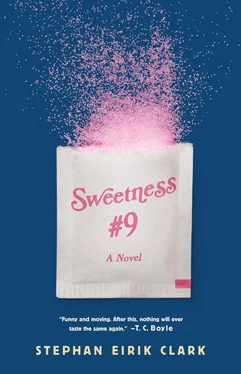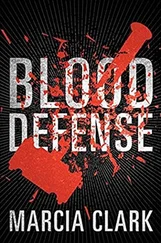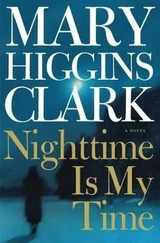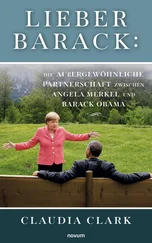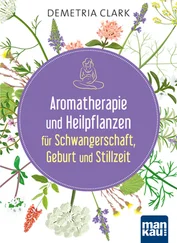“That pantsuit. The baby blue one Priscilla says reminds her of Hillary.”
“It was Casual Friday.”
My voice cracked. “Was it?”
“If my body were South America, your eyes would be a ship going around Cape Horn.”
I decided to go for a run. I didn’t have a destination or a route; I ran just to feel the breeze in my face, both that evening and the following two nights as well. It felt good, certainly it did, but I also couldn’t help but think I looked foolish doing it. I wasn’t one of these runners whose ankles and knees and elbows work together, seemingly expressing some graceful law of physics; I ran like a hoodlum fleeing a botched crime, and so by Sunday I had slowed my pace and begun race-walking, thinking this might be something I could continue to do at my age — at least until a carful of heckling teenagers pelted me with cans of Keystone Light on the side of the road.
I barely slept that night, though this was nothing new. A handful of times in the last week or two, I had pushed up on my elbows in bed and found myself transfixed by the same red numbers glowing on the face of my alarm clock: 3:21. Like a countdown: 3-2-1. A countdown to my own day of reckoning, the crash of all my most high-flying lies. It was just a matter of time, I knew, just a matter of days or hours, and then there it’d be, my very own Black Cherry Monday.
I got out of bed and went into the closet for a small brown bottle I left hidden beneath a stack of sweaters each night. It contained peppermint oil, and though the smell was meant to be as cool and reviving as a brisk run through a foggy forest, its full power had been lost on me by now. This was the cruelest part of the aging process: my olfactory epithelium was shrinking. Each night that I awoke sleepless and reached for that little brown bottle as another man might reach for a pack of cigarettes, I unscrewed its black cap and breathed in deeply, smelling less and less of the reviving scent.
I had known all along that my olfactory epithelium, the only part of the brain that protrudes from the skull, would at some point recede from inside my nasal cavity and leave me with fewer sensory receptors with which to meet the world. But only now that I could smell less did I understand more. I wasn’t just growing older. I was dying, wasn’t I? What else is death but a slow retreat of the senses? Yes, I was dying, and if I could be completely honest with myself just this one time, what could I say I had made of my life? Such a simple question, as ordinary as a shopping list, and yet as I got back into bed and closed my eyes against it in the dark, I felt like a man who’s had a black bag thrown over his head. Had I been a good father when it was no longer enough to simply be a proud one? A loving husband when the romance was gone? Had I bravely confronted all that life had put before me, or had I shrunk away, too fearful and full of pride to test myself against the obstacles; shrunk away again and again?
I had been there when Priscilla was born, and I’d cheered Ernest on as he took his first steps. But a second child, as anyone with children knows, is a demythologizing of the first. At some point after I’d grown certain my son had all his fingers and toes and could chew his own food, I had drifted away, gotten lost in my work, even hired a housekeeper, for Christ’s sake, if only so Betty and I could be sure there was nothing else that was expected of us.
Oh, ladies and gentlemen of the blogosphere, members of the Twitterati, hear my dolorous sigh. I had awoken in the middle of the night at the age of forty-nine, wondering what I could do about my wasted, ill-spent life. I wanted to go back and correct whatever error had grown so exponentially large and grotesque over the years, because I feared what would happen if we continued on without change. Sleep thankfully took me, but I kept tossing and turning out of it, like a fish struggling to find a hole in a vast commercial net. Then at last I fell into the right position, though the peace of mind this afforded me was all too brief. What seemed like seconds later I heard what I thought were Canada geese and felt Betty shaking me at the shoulder. “Didn’t you hear the alarm? You’re going to be late.”
It was a Monday — and more important, the day the Albanian report arrived.
AFTER RACING BACK from my mailbox, I dropped the manila envelope on my desk and stood over it for a long moment. The envelope looked as if it had been dragged by a mule from one end of Albania to the other, then thrown onto a ship that was taking on water. Dirtied and torn, water-stained in one corner and taped together in another, it bore the blurry stamps of postal and customs organizations in Tirana, Paris, and Washington, D.C. When I sent my hands into it, the skin of the envelope gave like an over-ripe fig.
Still too anxious to sit down, I flipped through the report’s many pages as quickly as I’d worked through my first issue of Playboy as a teenager. There were charts and studies, pages of written analysis by the Albanian authors, translations of findings originally made in Russian and Bulgarian, and slanted mimeographs and photocopied photocopies of photocopies marked Confidential. There was this and so much more, but nothing — nothing, so far as I could see — that had been torn from my own marbled notebook. I could give it to my daughter with a clear conscience. She might use it as ammunition in her war against “processed food,” but there was no way she could turn it against me, at least not directly.
Feeling a rush of endorphins and adrenaline, I dropped into my chair and flipped through the report once more, more slowly this time, working my way from back to front. And then there it was, a recognizable flash of letters that left me feeling as if someone had reached into my mouth and pulled out my stomach: Charles Hithenbottom.
“It is being important to remember,” this typewritten page began, “that companii Goldstein, Olivetti, and Dark was being allowed to present to FDA in its application for approval of Sweetness #9 only documents to be choosing to be including, not all many documents being created. Former FDA toxicologist, Robert Handley, in quitting his position of authority after The Nine was being approved for dry goods despite his many angry protests, says: ‘This is like allowing a murderer or rapist to coordinate and rule over his own parole hearing or trial, and it’s all done in the name of protecting proprietary information.’”
The Albanian-penned commentary went on to say that even though Goldstein, Olivetti, and Dark withheld certain information from the FDA, and falsified information in certain reports documenting its animal studies, the dangers of Sweetness #9 could still be detected “in the inconsistencies of the 48-page Summary of Chronic Toxicity Test, filed by CHARLES HITHENBOTTOM, animal testing analyst at Goldstein, Olivetti, and Dark. His writing shows one laboratory rat to be living on page 7, dying on 23, and resurrecting again in his body on page 44.”
Two shadowy snippets of text, both photocopies torn from Hickey’s original report, appeared beneath the Albanian commentary. The first read:
On day 124, E3CL9 refused its water bottle and rodent chow, and exhibited violent behavior when submitted to a forced feeding. Aberrant behavior remained on display throughout that week, after attempts to force-feed the test subject were abandoned owing to the risk to lab-worker safety. On day 128, E3CL9 was discovered dead in its holding tank, with its nose buried in the sawdust. An autopsy revealed the cause of death to be possible self-asphyxiation, though dehydration and long-term mental degradation, as a result of the formation of holes in the subject’s brain, cannot be ignored as contributing factors.
Читать дальше
